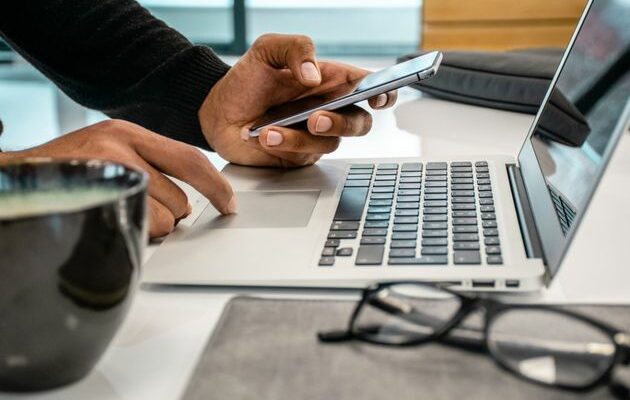The smartphone is omnipresent in our daily lives. In just a few years, he has invaded both our private and professional spheres. An OpinionWay study carried out on behalf of TDF provides an overview of its use at work but also of expectations in the field. We learn that 61% of French employees use their personal telephone at work. Employees of large companies are better off. 74% of them are equipped with a terminal provided by their employer.
As a result, employees have mixed use of their smartphones. 79% make professional calls and text messages and approximately the same proportion have private communications. The smartphone is also used to consult and respond to emails (74%) or instant messages (74%). Video calls are becoming more popular in business, particularly among managers. 69% use it compared to 57% for the average for all populations combined.
A true Swiss army knife, the smartphone is used both to consult documents (70%) and social networks (61%). It also allows you to take photos and videos (61%), use audio or video streaming platforms (47%), make online purchases (48%) or order meals (45%). A porosity of pro-personal uses which raises questions in terms of cybersecurity.
55% of employees consider the 4G/5G connection insufficient in their premises
The emergence of the concept of so-called service buildings nevertheless makes it possible to reinforce the interest of the smartphone in the professional environment. The employee can use it as a dematerialized badge to access offices, to unlock a car-sharing company vehicle, to reserve a meeting room, a place in the company restaurant or a concierge service.
Mobile connectivity also extends to laptops through tethering. 25% use this process to connect their computer to the office, 37% in third places (hotels, coworking spaces, etc.) and 48% when traveling to clients or partners.

Insufficient indoor mobile coverage
These services still need to be accessible. According to the TDF study, 55% of employees consider the 4G/5G connection insufficient in their premises and 61% that mobile coverage is better outside than inside the building. Six out of ten employees observe that the quality of the network differs depending on the workspace or floor.
This insufficient mobile coverage has negative impacts on productivity and well-being at work. 34% of employees say that it makes them fall behind on the tasks they are carrying out. In the era of working in hybrid mode, poor network quality makes face-to-face mode lose its attractiveness. Nearly a third of employees cite this reason for preferring teleworking.
Preaching for its parish, TDF recalls that it is possible to ensure continuity of service by creating, with DAS technology, for Distributed Antenna System, an indoor mobile network thanks to the deployment of antennas in office spaces. A private network which also ensures increased security.

Wi-Fi, an alternative that is not always credible
Degraded indoor coverage is all the more damaging given that 32% of French employees cannot connect their mobile to company Wi-Fi. For what ? In 42% of cases, their employer has not implemented a Boyd (Bring your own device) policy and does not allow personal devices to pass through the internal wireless network.
Likewise, 42% of employees believe that it is too complicated to connect to Wi-Fi. Even more serious, 23% of respondents say that the Wi-Fi network at their work is not secure enough. As a last resort, there remains public Wi-Fi. An even less secure mode of connection, as one in two employees recalls.
